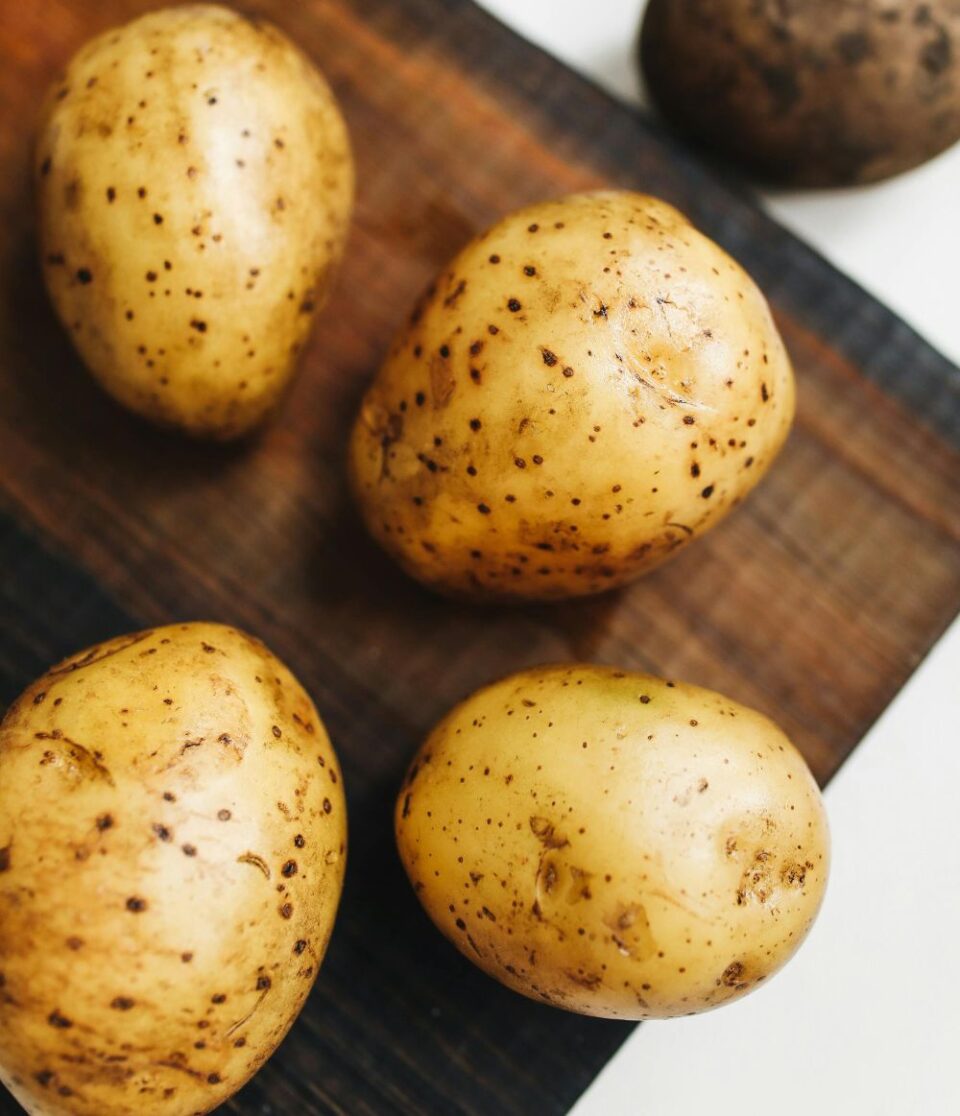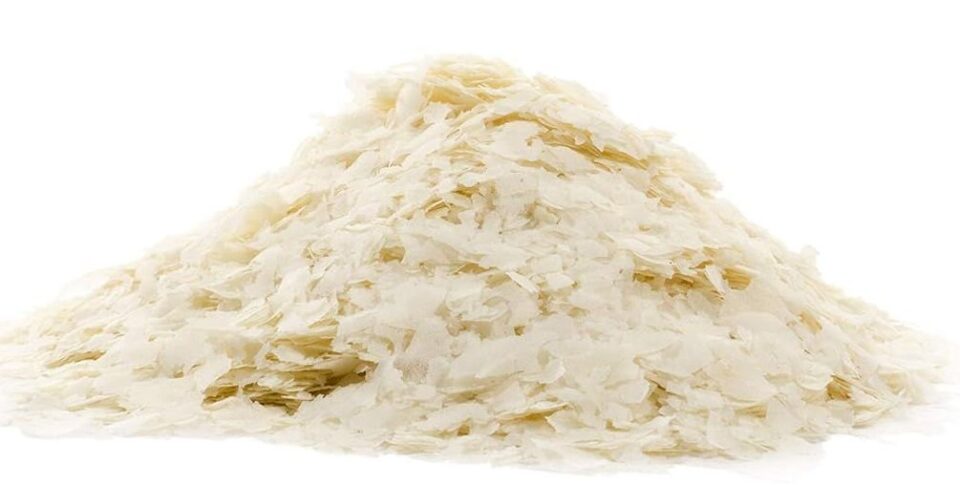Potato flakes are a useful, but somewhat uncommon ingredient, which might occasionally necessitate you to look for useful potato flakes substitutes.
And while potatoes are universally known, potato flakes can be a bit confusing to people who have not previously used them. Besides, there is a similarity and overlap with similar foods like potato starch, potato flour, instant mashed potatoes, and similar products. We’ll discuss the foods and substitution in detail to demystify this connection.
But first, let’s take a quick look at top substitutes for potato flakes. These are, potato flour, potatoes, instant potatoes, some starches (cornstarch, potato starch, tapioca flour, etc.), and some flours (rice flour, wheat flour, etc.).
While relevant, not all of these are universal substitutions. You will want to choose the substitute based on your recipe requirements. Let’s get into the details to see how it all works out.
Table of Contents
Top Potato Flakes Substitutes And Use Ideas
1. Potato Flour
The key difference between potato flour and potato flakes is the granulation. Potato flakes, as the name implies, are available as flakes. Potato flour is available as small grains or powder, much like regular flour. Other than this difference, these are both pretty much the same thing.
As such, you can substitute potato flour for potato flakes and vice versa. However, given the different shapes of these two products, the substitution should be done by weight, not other units. For example, because of its size, one cup of potato flour can have much more potato than a cup of potato flakes (since there will be substantial space between flakes).
By weight, substituting potato flour for potato flakes can be done in equal amounts.
2. Instant Potatoes/Instant Mashed Potatoes
Instant potatoes and Instant Mashed Potatoes are commercial products that are increasingly popular. They offer a quick and easy way to prepare mashed potatoes and related recipes. Most of the time, all the user has to do is to add hot water to the mix.
Well, these packages are generally based on potato flakes or potato flour. As such, you can use them directly in a recipe as potato flakes or potato flour.
However, there are additional points to consider. These packages are available in a variety of commercial options.
Some simply contain potato flakes and the user can add the seasonings, salt, and other ingredients. An example is this Amazon Fresh product, which is simply potato flakes.
Other products, like this Idahoan Mashed Potato also offers other ingredients like cheddar cheese, sour cream, and others.
As such, if you intend to use instant mashed potatoes as a sourcing option for potato flakes in your recipe, read the label carefully to see if it has other ingredients and if those ingredients would be suitable for your recipe.
3. Potatoes

When you need a potato flakes substitute but can’t find anything suitable, the easiest way out is to take the old-fashioned route and use potatoes.
Essentially, potato flakes are cooked and dehydrated potatoes. So, for most recipes, you can use the conventionally cooked mashed potatoes.
While this works for most cooking recipes, there are a few where the use of conventional potatoes as substitute for potato flakes is undesirable. The high moisture content here can result in something of a gooey or gummy/sticky product. Examples of such are the use of these flakes in baking bread, or as a binding agent in meatballs and meatloafs.
For such recipes, it might be worth considering a different substitute, like some starches.
Even for recipes where this works, you will want to adjust water content of the recipe for better results.
4. Starches
It is often potato flour that is used as a thickening agent for gravies or in baking applications. And though the use of the flour is easier, potato flakes can also easily take on the same role and are often employed for this purpose.
For several uses, like in baking bread or in making meatballs and meatloafs, potato flakes work as wonderful binding agents, while their affinity for water also makes the dish moist and with a delightful texture.
So, when you want potato flakes substitutes for such applications, many starches can naturally take on the role. Let’s take a look at some options worthy of note.
- Cornflour: Cornflour or cornstarch is the world’s most popular starch. It’s great for thickening gravy, though it doesn’t work as well as a binding agent and for applications that require deep frying at high temperature.
- Potato Starch: Potato starch may not have the same flavors and nutrition benefits as potato flakes, but it can still work as a thickener and binder for most food applications.
- Xanthan Gum: This is an excellent thickener and binding agent that works well for cooking and baking needs. However, as a binding agent and thickener, it’s far more potent than potato flakes. So, it’s best to use a significantly lower amount, starting with perhaps one-third or even one-fourth the amount of xanthan gum, compared to the amount of potato flakes.
- Arrowroot Powder: Arrowroot powder is another useful thickener for gravies and can also work as a binding agent.
You might also find it useful to work with other starches, like tapioca flour, though the starches mentioned here should work better than other alternatives. Yet, for individual applications, experimenting with your options can be a great way to get wonderful results.
5. Some Flours

For some cooking options, you can choose to use flour in place of potato flakes. The applications for this substitution are generally in baking for binding agents, though they also work remarkably well for deep frying. Flours can also be used to thicken gravy, though many find that starches are the more relevant option for such uses.
Here are a few ideas to consider:
- Rice Flour: Using rice flour in place of potato flakes can work for thickening gravy or sauces. It can work as a decent binding agent as well, though it shines best as a thickener, especially for stews and sauces. However, flour doesn’t absorb as much water as potato flakes, so you might want to use double the amount of rice flour when compared to potato flakes.
- Wheat Flour: The common flour can be used as a thickener for some sauces and stews. It’s also a popular baking ingredient.
- Coconut Flour: Coconut flour is also a decent thickener and works remarkably well for baking goods too. However, do expect a change in flavor and texture as this flour carries its own, very distinctive flavor. It holds remarkably well to deep frying as well, making this an interesting choice.
- Almond Flour: Increasingly popular for cooking and baking, especially for those who want to go gluten-free, almond flour can be a decent substitute for potato flour in several recipes. Though it should be noted that this too comes with its own distinctive flavor, which is quite different from potato flakes.
Other options like quinoa flour and chickpea flour can work too. You can consider a flour of your choice to make things work.
Quick Notes And FAQs On Potato Flakes Alternatives And Usage
Can I Substitute Potato Flakes For Breadcrumbs In Meatballs?
Definitely! In fact, potato flakes are fast coming up as a desired replacement for breadcrumbs in recipes like meatballs, meatloafs, and even patties.
The simple reason for this is that given the affinity the potato flakes have for water, they help keep the meatballs moist and add to the overall flavor and texture.
Is Potato Flour A Good Substitute For Potato Flakes?
You can substitute potato flakes for potato flour with relative ease. Generally, these are both the same product, with granulation being the difference. The flakes are large and come in a flakes shape, while the potato flour has a relatively fine grind.
You can substitute one for the other without an issue. In many cases, it’s perfectly acceptable to grind potato flakes as a way to get the same consistency as potato flour.
Are Potato Flakes, Potato Flour, And Potato Starch The Same Thing?
Potato flakes and potato flour are pretty much the same thing with the difference simply being the granulation of the product. However, potato starch is a different product that doesn’t share the same taste or nutritional characteristics of the other products.
While potatoes are naturally rich in starch, the potato starch itself has very little nutritional value and is extracted from potatoes through processing.
Meanwhile, potato flakes and flour are made from potatoes cooked, dried, and ground into the desirable size. As such, they include most of the nutritional goodness of potatoes.
What Is The Shelf Life Of Potato Flakes?
Potato flakes are remarkably resilient and can have very long shelf lives. If unopened, conventional commercial packets can last for as long as 10-15 years. Better packaging can have a shelf life even greater than 25 years.
All this makes potato flakes a desirable choice for preppers, since they basically guarantee a decades-long supply of food.
Once the box is opened, potato flakes should be stored in a hygienic, cool, dry place without sunlight. When stored properly, they can be used for up to a year.
Keep in mind, this is about plain potato flakes with specific packaging. Many companies sell potato flakes with seasonings and other ingredients, while others might not insist on suitable long-term packaging. As such, read the labels carefully to fully understand how long the product will last.
Parting Thoughts On Sourcing And Use Of Potato Flakes Substitutes
Now that we’ve looked at sourcing options and useful potato flakes substitutes, it should be fair to say that many of the options can be used without a problem. While potato flakes are remarkable for their own flavor and versatility, you might be able to use the substitutes mentioned here to make the best of your recipe.
Being ubiquitous and beloved across cuisines, potatoes are widely available throughout the world. The potato flakes are as versatile, finding use in many options, from fillings for foods to deep frying. So, take a second look and enure that the substitute you choose is up to the task and the cooking method.

